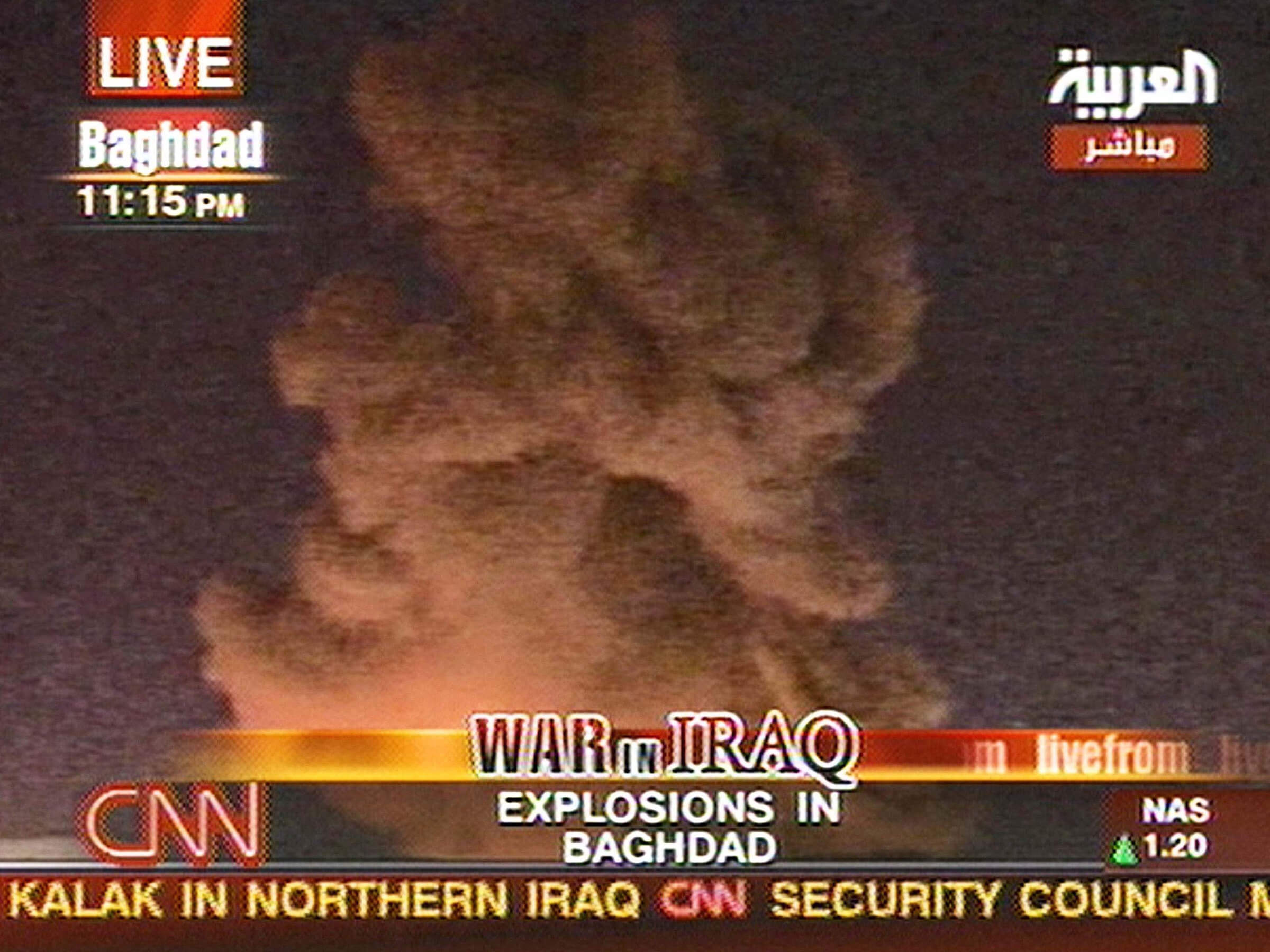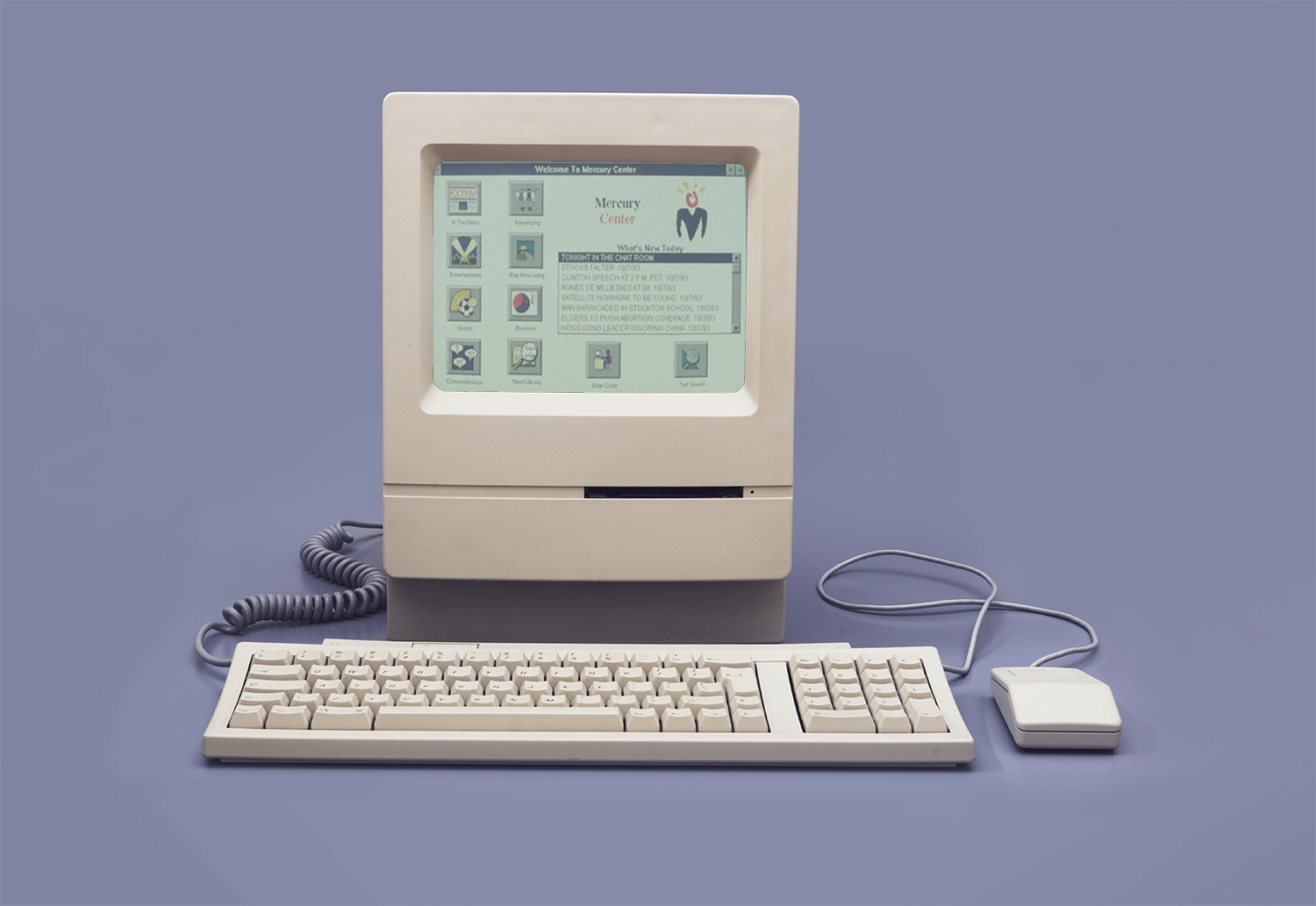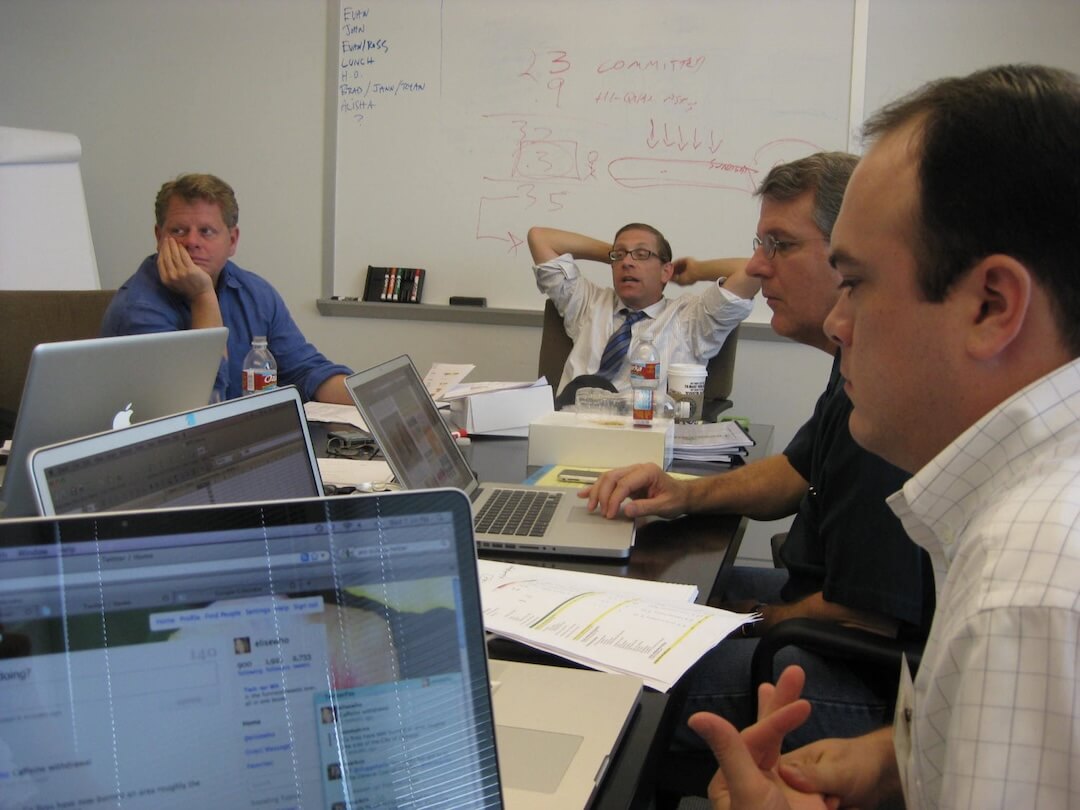This article is part of The Poynter 50, a series reflecting on 50 moments and people that shaped journalism over the past half-century — and continue to influence its future. As Poynter celebrates its 50th anniversary, we examine how the media landscape has evolved and what it means for the next era of news.
Huddled inside the Al Rasheed Hotel in Baghdad with his colleagues, CNN’s Bernard Shaw uttered a sentence that crackled over the airwaves to reach American televisions and change the world and cable news forever.
Among those reporting that night was a brown-haired Wolf Blitzer, still fresh to CNN and the Pentagon beat. “Like much of the country and the world,” Blitzer said, “I will never forget hearing Bernard Shaw say these words as he was reporting from Iraq as the war began.”
“The skies over Baghdad have been illuminated.”
Viewers were hypnotized by glowing, green-hued lights zooming and exploding across their television screens, like something out of an early video game such as “Asteroids” or “Space Invaders.” Except this was real. The date was Jan. 17, 1991. The U.S. had begun Operation Desert Storm. And CNN was there, in the middle of the danger, to capture the war in real time, showing the power and reach of cable news like never before.

(Courtesy: CNN)
Blitzer had joined CNN only a few months before Iraqi leader Saddam Hussein invaded Kuwait. He thought the Pentagon would be a slow assignment.
“I was wrong,” Blitzer told Poynter. “All of us who covered the buildup to the war and the war itself worked nonstop, including our correspondents and producers who risked their lives reporting from Baghdad as the bombs were falling.”
At first, Blitzer didn’t realize the impact CNN’s coverage was having. Then the calls started coming.
“The top Pentagon leadership — Defense Secretary Dick Cheney, Chairman of the Joint Chiefs Gen. Colin Powell and other senior leaders were quickly reaching out to me — a newcomer and relatively junior reporter at the Pentagon — to brief me on the state of the war,” he said. “They of course knew that everyone around the world was watching CNN and they wanted their analysis reported.”
Then came a bigger realization. “It also became very evident to me that the top Pentagon brass knew that Saddam Hussein’s military leaders in Baghdad were watching CNN.”
Ted Turner launched the 24-hour news network in the summer of 1980. In its first decade, CNN had already delivered live coverage of national tragedies, drawing millions of viewers. They watched in horror as the Space Shuttle Challenger exploded 73 seconds after takeoff in 1986. Perhaps most famously, CNN kept viewers riveted for 58 hours as rescuers fought to save Jessica McClure, the 18-month-old who fell into a well in Midland, Texas, in 1987 — a moment that proved the power of 24-hour news to hold the world’s attention in real time.
But round-the-clock coverage of Operation Desert Storm — not only after the U.S. strikes began but in the months leading up to it — showed the capabilities of an international, well-sourced and appropriately stationed news organization that aired coverage 24 hours a day, seven days a week, 365 days a year.
And it was clear to Blitzer that the war wasn’t just being covered on live television — it was unfolding in front of a global audience, including the very people waging it.
The moment cemented CNN as a global news powerhouse, bringing live war coverage into homes worldwide. For the first time, audiences witnessed real-time bombings, battlefield briefings and frontline perspectives, reshaping expectations for crisis journalism. The conflict elevated figures like Benjamin Netanyahu, a frequent commentator who leveraged media visibility for political prominence.
In his book “Live from Baghdad” — later adapted into an HBO movie starring Michael Keaton — producer Robert Wiener wrote, “Spearheaded by the Boys of Baghdad (Shaw and fellow reporters John Holliman and Peter Arnett), the network’s gripping coverage of the start of the Gulf War was carried around the world. Television stations in Britain, Germany, France, Israel, Brazil, and Sweden, for example, preempted their regular programming and punched up CNN instead. It was the same story in the United States. Across the nation, affiliates dropped their network’s coverage to rely on CNN. In Littleton, New Hampshire, for example, you could watch CNN on the station that usually carried NBC. And in Atlanta, you couldn’t watch anything but CNN, as NBC, CBS, and ABC affiliates all made the switch to ‘the world’s most important network.’”

(Courtesy: CNN)
Blitzer summed it up perfectly when he told Poynter, “It was a seminal moment in wartime journalism that put CNN on the map and made it must-watch TV. CNN’s popularity eventually paved the way for the creation of other cable news networks.”
The 24/7 format of cable television has fundamentally reshaped journalism and public discourse. It hasn’t been without its flaws. The relentless repetition of stories creates fatigue and amplifies minor developments into major events. The phrase “breaking news” is often neither breaking nor really news. With so many hours to fill, cable TV news often falls into a pattern of hauling in pundits for speculation or, even worse, hot takes, outrage bait or outright misinformation.
But CNN showed that news can be more than important. It can be riveting.
Much has changed since its groundbreaking coverage of the Gulf War — technology, viewing habits, the media landscape itself. But it paved the way for the constant flow of information that many of us now get through social media or a finger swipe on our phones. To this day, Blitzer still sees the impact from the night the Baghdad skies were illuminated.
“Even now,” he said, “people still come up to me and thank me for CNN’s coverage of the Gulf War.”
Correction: This story has been updated to note that CNN producer Robert Wiener did not die in 2019. We apologize for the error.








